#Its the worldly priest
Explore tagged Tumblr posts
Text
I wrote that post literally on EP 5, so now that I've seen it through I have more thoughts!
! SPOILERS !
First I must say this as a long time spn hater (by hater I do mean I love this show in an obsession type way) :
I think Fellow Travelers is obviously a more important statement, and with that in mind I want to be clear that these are apples and oranges.
But the way both Skippy and Cas make me feel is the sameee
Something about "Beyond Measure" fits Cas so well too.
Being a small part of something big,
Looking for God, finding a broken man
Soldiers
Their hope, kindness, and work towards positive change despite continued suffering.
Their hope to find something "right" to believe in, over and over again.
Their drive to do right by others, and the gut-wrenching guilt they feel if they think they fail.
Their belief in those they love, like they couldn't do anything to hurt them even though they have before.
Their torturous love and resentment of God

Just their final monologues are so **so** SO:
Tim
"I spent most of my life waiting for God to love me. And then I realized the only thing that matters is I love God. It's the same with you. I have loved you my whole life. I've never loved anyone but you. You were my great, consuming love. And most people don't get one of those. I did. I have no regrets."
Cas
"But I think I know... I think I know now. Happiness isn't in the having, it's in just being. It's in just saying it.
... Knowing you has changed me. Because you cared, I cared... I cared about the whole world because of you. You changed me, Dean.
I love you."
An idea-
Skippy/Cas parallels.
Just hurting my own feelings


#supernatural#Castiel#Fellow Travelers#Skippy#tim Laughlin#i love them#misha collins#jonathan bailey#thoughts#fellow travelers spoilers#Benedictions by Kalmialatifolia#if you want to know the similar Cas vibes and overlap I see in a fic I HIGHLY recommend Benedictions#Its the worldly priest#Its so good#but im off on a rant abt fic now lolol#mythopoetry#Benedictions#Maybe the searching for meaning while refusing to fot into the unkind finer points of religion is just a thing for me
12 notes
·
View notes
Note
Not sure if my ask was eaten so I apologize for any duplicates. I would like to request a Trey x shy fem!reader where reader surprises Trey by wearing lingerie
satin ac deliciae
Content Warning: Trey x F!Reader, langerie, body worship, oral, orgasm denial. MDNI.
Characters Count: 8598
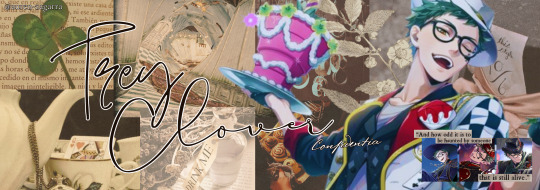
Before the tongue ever touches, before the scent even reaches the mind’s fragile threshold, we consume with the eyes. Hunger, we like to think, begins in the stomach - but that’s a lie whispered by practicality. Hunger is born in vision, in the aching stillness between sight and longing. The eyes, those insatiable voyeurs of the soul, devour before the body dares to follow. We don’t just observe a meal - we interpret it. We examine its colors, its shape, the sheen on the glaze, the way it’s been arranged. Every detail becomes a question: Will this feed me? Will this move me? Will it be worthy of desire, or is it only a hollow imitation of fulfillment? So often, the answer lies not in flavor, but in presentation. The way something dares to be looked at. The way it calls to be wanted.
And perhaps that was the thought that guided your hands that evening, as you wrapped your body in dark lace - elegant, ephemeral. You weren’t dressing for warmth or for comfort. You were dressing to be seen, to become a vision. An offering.
Laid across Trey Clover’s bed, you weren’t merely naked, you were prepared. Garnished with silk, limbs relaxed like petals in bloom, eyes half-lidded as an invitation. You did not speak, because you didn’t have to. The image was enough. And he - he stood there, spellbound, not yet moving, not yet touching. Just looking. Letting his hunger grow the way all hunger does: through imagination, through the torment of what lies just out of reach. You had become the meal. And he, the priest at the altar of your body, ready to taste salvation.
Though affection coursed through your veins for the man before you, the way his eyes lingered upon your form stirred in you a duality most tender and most tremulous. You were both desired and demure. He, ever composed, had long seemed above the base hungers of flesh - an ascetic soul cloaked in restraint, untouched by lust or worldly sin. And yet, in your presence, that sanctity wavered. There you stood, bare in intention if not in skin, like a feast laid before a starving saint - his gaze no longer detached but devouring. To imagine the trail his tongue would take along your skin, the firmness of his hands encircling the softness of your thighs… it was enough to rouse a tempest beneath your ribs, to summon a smile not born both from shyness and a quiet victory. For is it not in such moments, where restraint meets ruin, that one sees love as it truly is - not sacred or profane, but profoundly human?
He knelt before you, as though at the altar of a temple, prepared to offer worship not through prayer, but through presence. That intimate place, veiled in delicate lace, was no longer merely flesh, but a fragment of a divinity draped in silk. You reached down with a trembling hand, fingers weaving gently through his hair, as though to anchor yourself in something real - anything but the burning truth unfolding before your eyes. For to look upon him in that moment was to risk unraveling entirely. How gentle he was… how devastatingly tender. Removing his glasses with the care of a scholar setting aside knowledge in favor of instinct, he peeled back the final barrier - that lace, once an innocent veil. And then, his lips found you - kissed you as one might kiss a relic, his tongue drawing slow, knowing patterns over the most sensitive crest of your being - your clit.
Your thighs, draped over his broad shoulders, trembled like autumn leaves caught in the wind. And when you gasped Trey’s name, spoken with the broken grace of a supplicant - you were not merely a woman in pleasure. You were undone. And he, blind to your expression yet attuned to your every twitch and breath, knew: under his touch, you became nothing but a sacred ruin.
Your teeth sank gently into your lower lip, a futile attempt to quiet the tremors of pleasure building within. His fingers moved with a rhythm that felt like the definition of pleasure. In and out they danced, not merely touching, but orchestrating, always grazing the sacred places that made you sigh, yet never pressing far enough to grant you an orgasm. It was an art - this restraint he wielded - and you, his willing canvas. There was cruelty in his kindness, a sadist's devotion too tender to name as torture, too precise to be accidental. He did not take; he held you at the edge, made you linger in longing, until even the ache became holy.
Oh, how you melted beneath him, not as wax before flame, but as soul before ecstasy. His every gesture, every breath was a quiet offering in the temple of Eros. And you, devout in your surrender, knew no greater truth than this: that love, when spoken through the body, could be both agony and salvation. The pleasure surged, divine and overwhelming, rising like a tide destined to crash upon the shore of your reason. You were on the precipice, poised to surrender yourself wholly to the arms of sweet sin, when suddenly - he halted. Clover withdrew with calm precision, leaving your body aching and your soul suspended in denial. A groan escaped your lips, half broken, half pleading. He had ruined your release - and you both knew it. No accident marred that moment; it was a cruelty woven with dark intentions. He wished to see you unravel, to watch your tears bloom - not from pain, but from the unbearable beauty of unfulfilled desire.
And weep you did. Ashamed, perhaps, of how easily you had given yourself to the altar of pleasure, how earnestly you clung to ecstasy as though it were salvation. You felt, in that moment, like a fallen seraph - cast from the heights of rapture for daring to want too much. Yet he, the very architect of your descent, did not revel in your ruin. He merely rose, his expression soft and reverent, and with grace wiped away the tears that trembled down your flushed cheeks. His eyes wandered over the lace that adorned your body - delicate, as though spun from divinity itself. And in that gaze, there was hunger.
Befitting a rite, he shed the last of his garments, as though peeling away the final layers of civility between the purity and the carnal. His fingers, warm and unhurried, toyed with the clasp of your bra - curious and lustful, as though unveiling not flesh, but a secret long kept from the world. And when at last he bared your chest - still rising and falling in ragged rhythm, the echo of pleasure unfulfilled - he paused. You flushed beneath his gaze, crimson blooming across your skin like morning light over snow. How unaware you were of the sight you offered: a goddess undone, trembling in the aftermath of ecstasy denied. And oh, how it stirred something primal within him.
With lips he captured the peak of your breast, suckling gently as though tasting for the first time lust. A trail of kisses followed, each one blooming into a mark, climbing your throat like ivy until at last he reached your lips. And then, with a motion as natural as breath, he entered you. The moment was not violent, not hurried. It was the meeting of longing and love, of soul and sinew. He moved with the solemnity of a man possessed, hips bucking in earnest, as though each thrust could transcribe into your body the poetry of his passion. No words could express what surged between you - but in that union, your bodies became verses, your breath the punctuation, and your hearts the boundless, unedited truth.
The lingerie, once so carefully chosen, now lay discarded - forgotten like the rest of the world, as if nothing beyond this room had ever existed or would ever matter again. All that remained was the rhythm of his hips pressing into yours, a cadence that drove you again and again to the precipice of pleasure, only to pull you back with devilish grace - his own cruel liturgy of longing. He knew your body like scripture, each sigh and shiver a verse he had memorized by heart. And still, he teased, holding back the tide of your release as though to stretch the moment into eternity, until even the act of denial became its own kind of ecstasy.
But then, finally, Trey gave in.
With one last thrust, he spilled into you, warmth flooding your core in a reckless, worshipful offering. It was not merely lust spent, but love in its rawest form: messy, uncontained, human. A gift wrapped in sweat and breath and the unbearable closeness of two souls laid bare. You were no longer lovers, nor flesh and flesh - you were one wound, one whisper, one pulse. And as the night stretched on, tangled in limbs and love, you couldn’t help but laugh softly - because all of this… this beautiful ruin… had begun with nothing more than a delicate, lacy pair of panties.
#twst#twst x reader#twisted wonderland#twisted wonderland x reader#twst smut#twisted wonderland smut#trey#trey x reader#trey smut#trey clover#trey clover x reader#trey clover smut
55 notes
·
View notes
Text

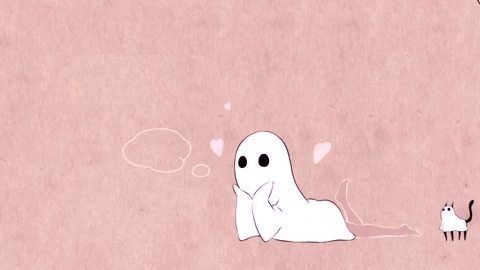
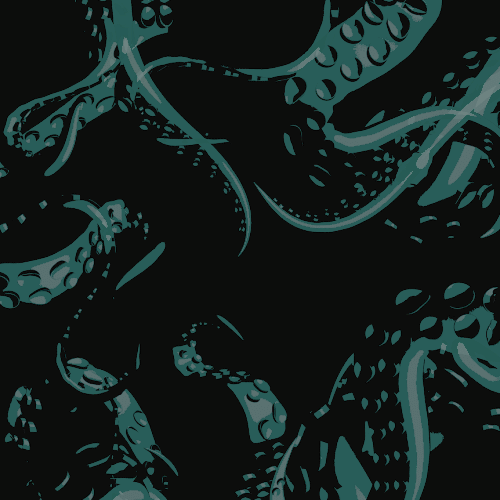


Beneath Your Depths ..... Do You Feel Anything?
Pairing: Poly! 141 x Reaper! Forensic Pathologist! Female Reader
Masterlist - Prequel - Part One - Part Two - Part Three - Part Four
Content Warning: Graphic description of you and what you really look like. You are Death aka the pale horse, the grim reaper, the main dude bossing around the little reapers under your employ thing. Prequel to the series of one shot parts I have written before this one.
Note: If you prefer to remain unaware about how I want to depict you. Feel free to skip this one. It won't affect the future parts or anything. Just like an extra plate of food, you are always free to say no thanks, I already have enough here.
I won't add a summary either because I don't want to spoil anything for this one, and I want to know if anyone will like this or not.

You are always certain you knew everything there was to be in life and death. Knowing both worlds so intimately. What else could you be?
Abhorrent. Antediluvian. Colossal. Eldritch by some people's standards. The creature standing before the four of them, the four men, it was nothing like they have ever seen before.
Ethereal. Most of the time you are formless. An incarnate of death in flesh, a silent spectator of mortality's dance. But now, as you stand before the creature, the air thickens, and your form solidifies. Price's eyes narrow, taking in your sudden presence. Soap's hand tightens around his combat knife. Ghost's grip on his rifle relaxes slightly, his gaze flicking to the side to assess the new player. Gaz's eyes, however, light up with an unreadable emotion.
Necromantic as you are in fact one of the four horsemen of the apocalypse. You were huge. Bugger than any monster they have come across in the past. So otherworld, outer worldly and powerful, you could feel the tremor of fear emanating from the men. Fear of death. Common among humans. Uncommon amongst other monsters.
What did they have to fear from you? You were just as freakish as they are right?
A primeval they called you. A creature related to the beginning of everything. A creature so old none could possibly comprehend you without taking the overarching risk of madness over taking them.
Some priests and nuns claim you as unholy. But you are as natural as the earth beneath their feet and the air in their lungs.
After you consume someone or something a putrid smell clings to you, your flesh, your bones and the essence of your blood. Yes. You have blood. Yes. You can bleed. No. You are incapable of dying. But you are able to appear dead to anyone who would have or have tried to kill you in the past.
Your exoskeleton is there if someone where to squint hard enough to see the shape beneath the endless smog surrounding your gargantuan form. Born of star and moon, you have no reason to harm outside your predefined nature.
You have no reason of knowing why they were there before you. They weren't supposed to die just yet. There time had not come close to arriving. You knew this. Your body knew this and your soul declined their intrepid touch.
Necrotizing the living and bringing them unto the other side where they were supposed to come to when it was their time to go. Ritualistic in behaviour but never quite fitting in. This creature before them is you.
Predatory in nature much like the sharks, the bears, the wolves, and the many animals that kill in order to endure.
Insidious, malevolent, deranged and yet eerily benevolent. Not outright kind mind you. Death is anything but kind in the hearts and minds of mankind. But for you? It's a job. Its a promise. Its a wish. Its a release.
You don't wish to end things for the sake of ending them. No matter how many might find that hard to believe or reject it completely.
The ghastly chthonic array of the deceased walking past you like you weren't even there. Like you weren't the only who brought them there. A cycle of nature you were in tune with without having to remember the tune or even explain the why of it. Wave after wave like the ocean eroding away stone and metal beneath its watery depths.
Macabre. Visceral.
Charnel. Sepulchral. Thanatoid.
Abysmal in some aspects and reflected in most cultures as something or someone most feared. Yet here you are, a being of the void, standing in front of men who have seen hell and lived to tell the tale. You look into Price's eyes and for a moment, you see a flicker of recognition, a glimmer of understanding that you are not here to do harm but to uphold a balance that has been skewed.
It didn't matter what they thought of you, You have a schedule to keep in time with. You can't afford to mess any of it up. With each heavy footstep away from the four men. Each thump on the ground beneath your feet resonated through the air like a silent drum beat. You felt the tension ease slightly as your form grew more indistinct.
Price spoke up, his voice a gravelly rumble that seemed to echo around the abandoned warehouse. "What the fuck was that?" Soap's eyes didn't leave the spot where you had been standing, knuckles white around the grip of his knife. Ghost was the first to move, holstering his weapon and walking towards the spot where your ethereal presence had been. He knelt down, inspecting the ground with a keen eye.
"Looks like it left something behind," he said, picking up a small, gleaming object that looked out of place amidst the dust and grime. It was a tooth, shaped unlike any creature they had encountered before. The serrated edge and crystalline sheen hinted at a power that was beyond their understanding.
A small piece of obsidian with red under glow just beneath the surface.



#Poly 141 x Reaper! Forensics Pathologist! Female reader#female reader#f! reader#fem reader#poly141 x female reader#poly141 x fem reader#poly141 x f!reader#poly141 x reader#poly!141 x reader#poly!141 x female reader#poly!141 x fem reader#poly!141 x f!reader#Simon 'Ghost' Riley x reader#Simon 'Ghost' x reader#Ghost Riley x reader#Simon 'Ghost' Riley x female reader#Simon 'Ghost' x female reader#Ghost Riley x female reader#Captain Price x reader#Captain Price x female reader#Captain John Price x reader#Captain John Price x female reader#John Price x reader#John Price x female reader#Kyle 'Gaz' Garrick x reader#Gaz Garrick x reader#John 'Soap' MacTavish x reader#Soap MacTavish x female reader
55 notes
·
View notes
Text
FINE LINE. ₊˚⊹♡
;ֶָ 𓂃⊹ ִֶָsimon riley + reader
summary: you knew it was over, in fact, it never really began. but in your heart, it was oh-so-real.
tags: introduction to a new series! there is cliffhanger smut and talk of religion but that's mostly all!
head barbie's announcements: i'm back! after a long break that was totally needed because my brain was fried!! my masterlist will be updated, this will be a series so just think of this as the backstory, anddddd that's all! kisses and hugs for u always. if this is offensive or makes anyone uncomfortable i apologize and i will take it down without a problem!! this is just an idea for a fic! if you like it maybe i'll continue! “Am I making you feel sick?”

The hate you had for Simon Riley ran deep. Before you met him you were a good girl. You went to church every Sunday, volunteered to help in youth groups, and were the Priest's daughter. It was a life filled with love, community, and toxicity. Your father had been waiting to auction you off to his favorite usher's son. Your father judged a book by its cover; unfortunately for you, that meant almost no friends.
So when a young man and his mother come to church for the first time, your father is less than thrilled. His mother was known around town, she was a sleaze. She was outgoing, boisterous, and sometimes flirty. Your father called her a jezebel, although you tried to ignore his rude comments and welcome them into the church. Simon's mother thought you were the cutest thing since Polly Pocket, although you didn't quite resemble Polly your tiny stature was often compared to her. Her son, Simon was the complete opposite. He was quiet, shy, and often never spoke. That was comforting to you, everyone in the church always had something to say, except for him. You had tried countless times to invite him to youth groups and asked him for dinner! Your father scolded you, although you didn't care what he thought of the new followers, to you they deserve all the love. Once Simon had gotten to know you more, he had liked you. You were small, and kind, and your big eyes made him groan internally. You were the perfect kind of toy for him to play with. Gullible and bashful. The more you hung around Simon the more worldly you became. Your father took notice and made sure you knew how disappointed he was. Not only did he ground and ban you from seeing your new friend, but he also forced a purity ring onto your hand. Your father was a sick man. There have been many scandals surrounding him. He simply shushed them away with money. His only way out of any bad situation. In a way, Simon reminded you of your father before the church. Loving, caring, and gentle.
You had often snuck out late at night to visit Simon. The two of you would meet up at a park called “Condamnée.” The park was a safe place for both of you. After your father had put the purity ring on you, you needed to speak to Simon. Only he could make your sweet little heart feel better. To say you felt like a sinner would be an understatement. But you couldn't help it. Simon was like a bad habit, something you kept running back to. You didn't know if it was possible to let him go, you felt like there was a strong connection between the two of you. When Simon sees the ring on your pretty finger he can't help but smirk. You looked up at him with teary eyes and he caressed your cheek gently. “You've let a silly little ring get you all worked up like this, peaches?” He would say in a condescending tone. You simply nodded with a pout. What he did next surprised you, but you couldn't ignore the wet feeling in your pink panties as he did it. He slid the ring off of your finger and took off the silver chain he wore. He slid the ring onto the chain and then clasped it around his neck. You looked at him with wide eyes and he simply chuckled. “Oh my gosh, I'm going to hell!” You said with a quiver of your lips. He chuckled and pushed you onto the bench. He bent down in front of you and kissed your ankles.
“Y'r here for a good time, not a long one peaches.” He said as he kissed up your legs. It felt wrong, it was wrong. Yet the feeling of his tongue gracing the inside of your thighs made you squirm. He looked up at you with a sinister smirk. He had his hood on so all you could see were his honey brown eyes and the skull imprint of his mask. Sick. This was sick. You tried to tell yourself to push him away, but you couldn't. He felt too good. As his tongue reached your panties he looked up at you, asking for permission. “Can I touch you, sweet girl?” He asked, you could tell he was practically praying for a yes. So of course, you gave him a soft nod. He looked up at you, the pretty little sinner in front of him. Oh, what a fucking sight.

#⋅˚₊‧ ୨୧ ‧₊˚ 𝐁𝐀𝐑𝐁𝐈𝐄𝐒 𝐀𝐕𝐄𝐍𝐔𝐄.#° ᡣ𐭩 . ° .𝐍𝐀𝐓𝐓𝐘’𝐒 𝐅𝐈𝐂𝐒!#౨ৎ ⋆ 。˚ 𝐓𝐀𝐋𝐈𝐀'𝐒 𝐓𝐇𝐎𝐓𝐒#simon ghost riley#simon riley x reader#barbie#ghost#ghost cod#simon ghost x reader#simon riley#ghost mw2#ghost mw3#simon ghost riley x reader#simon riley x f!reader#simon riley x you#simon riley smut#cod x reader#cod x you#cod x y/n#simon riley x female reader#simon riley x y/n#simon riley x you smut#call of duty modern warfare#ghost call of duty#ghost x you#ghost x reader#ghost x y/n#ghost smut#smut#cod smut
138 notes
·
View notes
Text
➠ Symbolism of Yuuji’s childhood memories in Chapter 265 and how it connects to his conversation with Sukuna:
I was rereading the latest chapter and ended up dwelling on how the order in which certain things appear along the path Yuuji and Sukuna are walking connects with the progression of their conversation and the outcome of it, so I want to point out a few of such details in case someone else finds it interesting.
First, I will start with Morning Glory (asagao, 朝顔, lit. morning face) Yuuji mistakes Ajisai for. Asagao was brought to Japan with the advent of Buddhism and came to represent Enlightenment. When one thinks of the flower, an old line often comes to mind: [Asagao blossoms and fades quickly to prepare for tomorrow’s glory]. It is the theme of one of the oldest songs on the morning glory, written by the Chinese priest at the temple of Obaku near Uji, who is said to have been the first person to introduce the flower to Japan. Since its arrival, it has been a frequent theme in Japanese Buddhist poetry, particularly when writing on the fleeting condition of human lives, as the poets found a congenial subject in the morning glory, for they considered no flower has a briefer life and beauty, and the buds of yesterday are flowers to-day, but only for a few short hours, and then nothing will be left but ruin and decay; though how quickly fresh buds will appear and fresh flowers open to be the tomorrow’s ‘morning glory’. Therefore, in Japanese culture, asagao is a symbol of new beginnings. The flowers open in the morning, representing the dawn of a new day, and close in the evening, symbolising the end of the day and the passing of time.
Next comes Ajisai (紫陽花), the Japanese hydrangea. The flower has both positive and negative connotations in Japanese tradition, symbolising both deep or heartfelt emotion and also a fickle or changeable heart. However, I mentioned in this post that the blue hydrangea (I am assuming blue, because Yuuji mistook it for asagao) can mean sincerity, forgiveness, remorse and spirituality. Ajisai are also an important part of the ceremony in celebration of Buddha’s birthday (Kambutsue), where his statue is washed with sweet hydrangea tea by the visitors of the temples. As such they are often found at shrines and temples.
After that, Yuuji and Sukuna catch Crayfish. Interestingly, Buddhist philosophy references the crayfish when speaking about the temporary nature of existence. All that seems solid and permanent, like the crayfish shell, eventually disappears. There is a famous painting of Priest Xianzi (Japanese: Kensu) by Unkoku Tōgan from the Momoyama period. It depicts a seated figure of a Buddhist monk who appears to be contemplating the large crayfish (or shrimp). Kensu or Xianzi is a semi-legendary eccentric priest of the Tang dynasty, who spent much of his time wandering along riverbanks, eating crayfish and clams. He allegedly achieved Enlightenment while catching a crayfish.
Later they come across Horses, which hold a special place in Buddhism, embodying spiritual virtues and the timeless quest for Enlightenment. The story of Siddharta Gautama Buddha’s renunciation and his separation from his beloved horse, Kanthaka, is a significant story in Buddhism. As Siddharta decided to leave behind his life of luxury and embark on a spiritual journey, he faced the task of saying goodbye to his beloved horse. The separation from Kanthaka symbolises the profound sacrifice he took when he renounced worldly attachments in the pursuit of Enlightenment. Additionally, in the Shamanistic tradition of East Asia and Central Asia, there is a concept of the Wind Horse, a flying horse that is the symbol of the human soul. In Tibetan Buddhism, it was included as the pivotal element in the centre of the four animals symbolising the cardinal directions.
After the horses, we see them engage in Archery. As a Buddhist symbol, the bow and arrow are found throughout the art, mythology and theology; held by gods, part of vivid legends, lauded in sacred texts and painted on the walls of the temple fortresses. They are symbols of the wisdom and compassion of the Buddha. Just as the arrow flies straight to its target, so too must the mind of the archer be focused and free from distractions.
And lastly, Snow. As a symbol of purity, it is taken as representative of naive innocence behind heroic undertakings. In this regard, it is also a subject of paintings in special combination with cherry blossoms as a symbol of what is ephemeral and transitional as is the life of the hero. However, snow is often associated in the Japanese short poetry with the Zen notion of Emptiness. This is because, to quote the poet Naitō Jōsō, snow covers and clears everything: [fields and mountains / all taken by snow / nothing remains]. From the lens of Buddhism, as the defilements—greed, hatred, and delusion—melt away like snow, the process of purification speeds up our relinquishment of impurity. To do this, one needs to be able to feel their humanity from within, where the invisible factors of mindfulness, clarity, faith, energy, concentration, and wisdom can dismantle and dissolve years of deluded ways of perception, of relating to life. Only then will the ground of awakening begin to appear.
I find Yuuji’s conversation with Sukuna to be rich in symbolism, each element along their path reflecting deeper themes of compassion and Enlightenment. Their journey begins with the morning glory, symbolising a new beginning and Yuuji’s offer of redemption to Sukuna. The hydrangeas, mistakenly identified as morning glories by him, signify Yuuji’s readiness and offer of remorse as he sincerely reminisces on his childhood with him. The appearance of the crayfish continues this theme, highlighting that this conversation is a chance for Sukuna to contemplate the temporary nature of existence and the path he wants to continue leading from there on. The horses, embodying spiritual virtues and the timeless quest for Enlightenment, appear as Yuuji’s way of asking him to renounce his old ways in pursuit of Enlightenment, followed by Archery right after, emphasising his readiness for compassion despite all Sukuna has done to him, mirroring the Buddhist ideal of a concentrated, undistracted mind. And lastly, comes snow as a symbol of purity and the potential for redemption, evoking the Zen notion of emptiness and the purification of defilements. Yuuji, by invoking these symbols, offers Sukuna the last chance at redemption and Enlightenment. He shows Sukuna the final act of compassion if Sukuna shows remorse, which Sukuna refuses.
In the end, Yuuji and Sukuna walk the same path, but their choices lead them in opposite directions. Yuuji embraces the symbols of Enlightenment, striving for a higher understanding and compassion, whereas Sukuna rejects these ideals, choosing instead to renounce the path to Enlightenment.
#i need to stop info dumping hereㅋㅎ#but i have so many thoughts on the last two chaptersㅜㅜ#hopefully someone finds this interesting.#jjk spoilers#jujutsu kaisen spoilers#jjk#jujutsu kaisen#itadori yuuji#yuji itadori#sukuna#ryomen sukuna
85 notes
·
View notes
Note
Do you have any information on the root scholars that you can share? They’ve always been a cool cult/organization to me
Ok it’s a facet of the Eterhimhamdli religion, which is The most widespread single belief system east of the inner seaway (which isn't saying much in terms of scale but it's still pretty significant) and also one I've barely introduced so I'll go over it a bit here.
Eterhimhamdli has spread past its initial sphere of old (~500 years BP) southern Lowlands Yuroma kingdoms, has many folk practices, and has schismed a few times, so there's a good deal of cultural variation. But its basic tenants/tendencies are:
-Creator deities are wholly rejected, the universe is an interplay between non-personified dualistic forces of Body(evil)/Mind(good). In one schism, the interplay of these two forces is the Dream, in others dreaming is an aspect of Mind.
-Deities in general are not wholly at odds with Eterhimhamdli, but their importance is de-emphasized and worship is usually discouraged in favor of making them objects of contemplation and/or tutelary figures.
-The Mind of the universe exists as a collective soul from which human souls emanate
-every person has two souls: an egoistic soul that animates the body and an ethereal soul that animates the mind. The latter is conceptualized as a single drop from a greater sea of the collective soul.
-belief that true wisdom is derived through access to this collective soul.
-belief that the trappings of the the ego-soul and the body's demands inhibits access to said collective soul.
-belief in the concept of enlightened beings who gain full experiential knowledge of the collective soul while remaining in a body, thus becoming capable of directly communicating aspects of their wisdom to the masses.
the biggest schism in this religion is over whether enlightenment just means experiencing full knowledge of the collective before you die, or whether it means transcending the limits of the body entirely and functionally becoming an immortal, godlike being.
deities of older/other religions absorbed by Eterhimhamdli are often reframed as enlightened mortals.
-most sects believe that only sophont life (or sometimes Only humans) have a etherial-soul along with the ego-soul, while animals exclusively have the ego-soul. Plants and inanimate objects Usually aren't ascribed souls outsides of heavily syncretic folk practices.
-belief in a fundamental good-evil cosmic dualism, though in a fairly complex way (evil is a necessity for life that is to be tempered and grappled with, rather than outright vanquished from the world entirely). The notion of 'evil' here is most associated with bodily desires (this includes all bodily needs like hunger and thirst, necessary to support life but viewed dangerous in excess, and being the root of conflict and pain).
the evil nature of bodily desire is not About sex, but does translate to non-procreative sex being frowned upon to varying extents.
-belief that life is a state of internal warfare between the evil ego-soul and the good ethereal-soul, with the former being more powerful and influential. To lead a good life is to bring the ego-soul into equilibrium with the ethereal soul. To live a wise and venerable life is to fully tip the balance in the latter's favor (this is not an expectation for lay followers, as it is considered profoundly difficult and requires separation from worldly life).
-lay followers practice forms of temperance to bring these forces into equilibrium, priests practice forms of asceticism to subdue the ego-soul and gain experiential wisdom in the process.
-The way you balance your life has consequences for the afterlife. An evil life causes an eternal death (this is usually posited as an underworld), a life in equilibrium causes one to be reborn into a new human body (a neutral fate), and a good life results in full return to the collective soul (this is a state of complete peace and contentedness and access to infinite wisdom).
-A selection of hallucinogenic plants are central to the monastic/priestly aspects of the religion, being seen as the key method through which the body can be transcended and the ego-soul can be quieted in order to tap into the collective. Lay followers do not participate in this facet on a regular basis.
-Priests also participate in self-flagellation, as the struggle with physical pain is a key microcosm of the broader internal war with the ego-soul, and can be a source of wisdom and contemplation. They are extensively tattooed for partly related purposes. Laymen are not expected to flagellate as a practice but rather to apply teachings to/learn from struggles with everyday pain.
-Very complicated relations with violence as a concept. Some strains of Eterhimhamdli philosophy see violence as an exclusive result of evil to be avoided whenever possible (usually more completely by priesthoods than the wider societies they live in), others see it as a neutral tool in of itself that Can be a force for good when used wisely. (Large scale 'wise usages of violence for the sake of good', shockingly, tend to favor the in-group's position in preexisting ethnic/religious/territorial conflicts).
-Most sects are proselytizing and see conversion as a necessity to create a better world, and have broadly unfavorable views of other religious practices.
This does not extend to seeing all societies that practice Eterhimhamdli or even The Same Schism Of Eterhimhamdli in a positive light (the birthplace of this religion is currently about 60 semi independent city-states organized into leagues that are frequently at war with each other)
-Highly favors education, literacy, rhetoric, debate, and the acquisition of material knowledge along with deeper spiritual wisdom. Knowledge and wisdom are venerable traits and societies should be led by the learned, or at least by people under their guidance.
---
The Scholarly Order of the Root is one order of Lowlands Eterhimhamdli monastics, functioning as a closed cult/mystery religion. They’re based out of Suurota (one of the biggest Yuroma city-states and dominant member of its league). They're at the top of the league's hierarchy of monastics, very wealthy, and have some involvement in governance (being an advisory body to the magistrate).
The Scholars primarily interact with the general public by hosting many of the league's institutions of scholarship and philosophy, and some of the biggest libraries in this part of the world. Their institutions are used by laymen Suurota citizens and members of government for study, and they host monks and priests (uninitiated to the inner cult) in their halls.
Actual membership to the Scholars cult is limited, they neither expect nor want associates to participate in their rituals. Rather, they position themselves as teachers- revealing small aspects of their secret knowledge to laymen and the lesser monastics as a form of guidance, while keeping dangerous knowledge for only the trusted inner circle.
Their baseline belief system aligns with the general schema of Lowlands Eterhimhamdli (one of three major schisms of this belief system), but their closed cult practices revolve around fairly unique interpretations, understood to be the ultimate underlying truths of this worldview.
The Scholars focus on an extention the Mind-Body model of the universe where their synthesis is the Dream (this itself is not unique to this cult, but the depths of their focus is). Under this model, the world is the dream of the collective consciousness, and achieving enlightenment or even temporary lucidity can allow the dream to be shaped to one's will.
One of their most secretive practices is god-building, in which they utilize altered mental states to shape the fabric of the dream into entities they can use as personal teachers of secret knowledge (also as a type of magic in general, they use it to 'build' guardians and curses and the like).
The process involves using mild doses of Ur-Root brew (mostly derived from roots of the clonal Ur-Wood colony, whose bark has notable concentrations of dimethyltryptamine and also hosts milder fungal hallucinogens) while maintaining an object and concept as a focal point of concentration. The altered state provided by the Root allows the user some access to the wisdom of the collective soul, and they will experience secret knowledge and revelations about this object, how it can best be used (this will be supplemented by material knowledge about the subject). This process is repeated until the user experiences a sense of Presence in the object, which must be interacted with, given a name and a face. Through more repetition, the object is believed to be shaped into a sort of thoughtform god which has come into material existence via manipulation of the dream.
This is considered to take immense time and effort to come to completion, god-building projects can last for years and be the combined effort of multiple Scholars. In the end, you have shaped an entity to your will that can operate independently of you.
The Ur-Wood itself is the center of Scholar cult practice, as it is both the purveyor of their most important hallucinogen and believed to have been the first god ever shaped by this form of lucid dreaming (it's a pilgrimage site for Eterhimhamdli where thousands of followers have undergone Ur-Root trips over the past four centuries, using the woods as an object of contemplation). To them the Ur-Tree is the ultimate teacher of their cult, an extremely powerful built-god that has been involved in almost every journey to enlightenment and contains all these journeys within its substance.
They believe that communing with the tree via Ur-Root can grant access to all enlightened mortals- full trips (with a DMT breakthrough type experience) will often involve sensations of encountering entities, which they interpret to be these historical figures. Within their religious framework, they're kind of speedrunning enlightenment. Under most conventional frameworks, the teachings of wise and/or enlightened people are conveyed in writing or speech as things to Contemplate on one's own journey- you might be able to understand them Conceptually but true understanding is Experiential, a process that can take a lifetime. In their framework, they're both receiving these teachings directly AND embodying states in which they can experientially comprehend them.
That summarizes most of their secret practices, and the rest of their practice is pretty standard for devout Lowlands Eterhimhamdlist priests. They live a partly ascetic lifestyle, they bear extensive tattoos as a contemplation of pain and marker of their journeys, they flagellate, they use tutelary hallucinogens, they refine their non-experiential body of knowledge through debate and rhetoric, they work to accumulate both worldly and spiritual knowledge, they work as scribes, etc.
#When I say 'cult' I'm using the 'specific form of veneration within a broader religion' definition. These people are very well known#and established in the religious framework of the Suurota league and not like a weird fringe thing.#The practice of upper priesthoods retaining secret knowledge is pretty standard for this religious sphere. The general public knows#they are Hiding Knowledge and this isn't an issue.#A lot of their secret practices would be questioned or viewed as potentially heretical by other Eterhimhamdlists though#Particularly their speedrunning brute-force approach to acquiring wisdom and perception that they are directly communicating#with enlightened mortals. A lot of the philosophy of this religion focuses on the journey to arrive to these truths across the span#of a lifetime. Most historical figures though to have achieved enlightenment did so on their deathbeds after a lifetime of work#and communicated the most important parts of their knowledge with the little time they had left. That's kind of the point.#Also it would have to be rewritten from the fucking ground up but the story that Whitecalf was originally a prequel to involved#the Scholarly Order of the Root attempting to godbuild a person into a weapon against a 30+ years down the line beefed up#Imperial Wardin in an expansionist period and at war with the Suurotan league#The original story still had all the magic stuff so they actually kind of did turn a kid into a magic weapon of mass destruction#These places aren't right next to each other btw and they've had pretty minimal direct interaction until recent history due to#having a Massive Fucking Mountain Range between them#(and also a good deal of space between themselves and said mountain range)#The Yuroma-Wardi population does originally descend from the general area of Eterhimhamdli's birth but the group that#Established this population arrived after a couple generations of moving place to place (some settling) in exodus after being driven#from their homelands in an ethnic/religious conflict with one of the earliest Eterhimhamdli states#Yuroma-Wardi is also a kind of placeholder name that I need to change. They derive from speakers of the Yuroma language family#but would not consider themselves related to the contemporary ethnic groups that are called Yuroma
49 notes
·
View notes
Photo
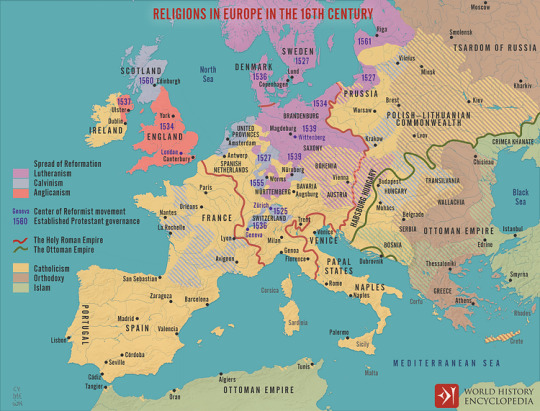
Protestant Reformation
The Protestant Reformation (1517-1648) refers to the widespread religious, cultural, and social upheaval of 16th-century Europe that broke the hold of the medieval Church, allowing for the development of personal interpretations of the Christian message and leading to the development of modern nation-states. It is considered one of the most important events in Western history.
The dates of the Reformation are not universally agreed upon. Some scholars date the event 1400-1750 (from the dissent of Jan Hus to the end of the pre-industrial society), while others suggest 1517-1685 (from the dissent of Martin Luther to the revocation of the Edict of Nantes), and there are many other claims regarding dating which have equal merit. The dates 1517-1648, however, are the most widely accepted, setting the beginning of the Reformation at Martin Luther's dissent and the end at the Treaty of Westphalia that concluded the Thirty Years' War which started as a dispute between Catholics and Protestants.
Although the Reformation was previously understood as a monolithic event, current scholarship interprets it more as Protestant Reformations, a series of protests against the corruption of the medieval Church, seeking reform and, initially, the leaders of these protests had no intention of breaking away from the Church. A prime example of this is the Bohemian Reformation (c. 1380 - c. 1436), precursor to the Protestant Reformation, which initially only sought to remedy unbiblical practices by the Church.
By the 15th century, corruption in the Church was widespread and devout believers sought to rectify this. The refusal of the Church to address these criticisms eventually led to the schisms that would establish Protestant Christian sects which developed into denominations such as Lutheranism, Calvinism, Anglicanism, and others.
The Protestant Reformation completely changed the European cultural, religious, social, and political landscape and is often referred to as the birth of the modern age as it coincided with and was encouraged by the Renaissance of the 15th-16th centuries. Although there were earlier movements in response to the corruption of the Church, modern technology in the form of the printing press allowed for the dissemination of protestant literature and the publication of the Bible in the vernacular, resulting in widespread support for the cause and the end of the monolithic religious, cultural, and political authority of the Church.
The Medieval Church
The Church dominated medieval Europe (c. 476-1500) as the sole authority on spiritual matters and, as it became more powerful, influenced the spheres of politics and culture. In time, the pope became a significant political presence and, generally speaking, spent more time and effort on worldly affairs than religious matters. The hierarchy of the Church – pope, cardinals, bishops/archbishops, priests, and those in monastic orders – began to exercise their authority more for their own personal gain and comfort than the spiritual well-being of the people.
The Bible was only available in Latin – which laypeople could not read – and the Christian Mass was also recited in Latin as were the prayers (such as the Our Father and Hail Mary) taught to the people. Although the Church mandated adherence to its vision of Jesus Christ's message, this did not resonate with many laypeople who practiced a kind of blend of Christianity with pagan folk belief. The inaccessibility of church teachings, coupled with the obvious display of luxury and comfort by the clergy, led to reform movements as early as the 7th century, and according to some interpretations, even earlier.
Continue reading...
26 notes
·
View notes
Text
Extra Worldly: Sleep Paralysis
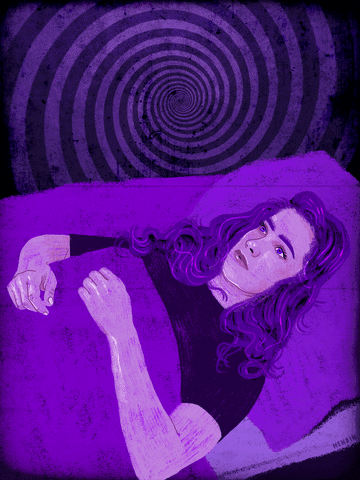
Its important to note Ive never personally experienced sleep paralysis while trying to astral project. As a result, my knowledge may be lacking here. Also totally crazy we are posting about sleep again!
For those who are following my extra worldly series and are thinking about getting into astral projection. You may eventually winding up experiencing sleep paralysis by mistake!
Sleep paralysis is when your body is asleep and your mind is awake (much similar to the begining stages of astral projection). The key factor here is the body paralyzes itsself so it cant act out its dreams. Your eyes sometimes will open wide awake and youll have halucinations as a result of your mind entering a sort of panic mode.
There are some mundane and spiritual things I can recommend if you bump into these issues and let me know what works for you so I can help more people in the future!
Mundane strategies:
-Do not drink caffiene before bed
-do not smoke or vape before bed
-have something calming/basic in your headphones so your mind stays awake without feeling a need to panic
-keep practicing and it should eventually go away!
Spiritual strategies:
-consult a spiritual authority if you have one (priest, shaman, witchy bestie)
-sage your space
-cleanse your space with a white candle
-look into buying protective crystals or talismans
-do a protective spell of some kind
I hope this information is handy for you! Again would love to hear some input here take care!
#pagan#paganism#witchblr#witchcraft#magick#witchy#shaman#witch#shamanism#astral projection#sleep#nightmares#dreams
9 notes
·
View notes
Note
Random Fun Fact, In Massive Monster's Merch Section, there's a Goat T-Shirt that if you look closely has Shamura on there. Specifically you can see them on the Goat's robes. Not sure if that means anything, since Lamb's T-Shirt has Mini-bosses instead of Narinder. But it's kinda sus that we got two separate occasions where Shamura's seemingly connected to the Goat.
hmm hm.
I've never looked very hard at the Unholy Merch cause I think the "metal" art style is... ugly, but that is weird. It's commissioned artwork so its pretty up in the air if the meaning is intentional or not, but I'll proceed as if it is!
Knowing that Goat and Lamb are meant to be parallels [duality, Two sides of the same coin, etc], the meanings we can derive from the Lamb's shirt are going to mostly apply to the Goat's shirt too.
They're both wearing a sash—specifically a stole. These sashes represent their religion/beliefs and are typically made of silk. In denominations that have them, stoles are worn by priests, deacons, or bishops. In denominations that don't, they're worn by higher-ranked members of the church. Effectively, disciples. Those who have been anointed with consecrated oil. [eyeballs emoji]
Stoles that are embroidered/decorated are called "vesper stoles" and worn for special events of the same name. Vespers is a communal ritual of evening prayer that begins around sunset. In certain Roman rites, it would last the entire night.
What Haborym and Eligos are classified as in-game are "non-believers" (Aka skeptics), which distinguishes them from the cultists and the Bishops, who are classified as Heretics.
They're both the second boss for their respective realms. And, they're both "hybrids". Eligos is a frog-bat (and has ~things~ growing inside of her), while Haborym is an octopus-jellyfish mix. I think. Even still, he's very clearly two or three beings sewn together.
There's the implication that they weren't always Like This, but were turned into monsters solely for the sake of fighting for their cult leader.
The Lamb's sash has the basic pentagram on it associated with the Old Faith, while the Goat's sash has the crossed-out circle associated with Wrath and The One Who Waits.
What I'm hearing is that the Unholy Lamb is Heretic Red (who worships the Lamb) and that the Unholy Goat is Heretic White (who worships themselves/worldly pleasures). [These titles are from the kickstarter] What I'm also hearing is that this Lamb is associated with Anura and Anchordeep, while this Goat is solely associated with Silk Cradle.
When it comes to the comparison being made between Shamura and Eligos/Haborym, it seems like further reinforcement that Shamura is 2+ entities that have been combined into one thing. And that Shamura wasn't always this monstrous spider, but was turned into this using the blood of the Great Ones/a ritual involving it.
What stumps me is how Eligos and Haborym are representative of the worship of the Lamb. There's just not enough info available to deduce that. Were they previous lambs? Previous Red Crown vessels?
Also, this Goat is our (Narinder's? The Crown's?) enemy. And is likely the figure depicted in the bone sculpture. If not simply just part of that entity's group. The entity associated with doubled lifespans.
What's extra interesting is that Lamb's background is a half circle. This is most likely the half-moon symbol that is notably absent from the Bishop's lineup. The Unholy Lamb's colors are red and orange. Instead of a collar, their bell is attached to a beaded necklace.
This means the Unholy Lamb is the Heretic Lamb. (The beaded necklace and the way their sash is worn unevenly may also be implying the Heretic Lamb was also the Anchorite) Also known as the Ignoble Lamb.
The Unholy Goat's colors are magenta and white. Their background seems like it's calling on the funeral/ascension rituals. This Goat is also, notably, dead/undead. Their head is alllll bone. Their bell doesn't seem to be attached to anything at all.
The Lamb of Death, and the Goat of Conquest. Two sacrifices, one more into it than the other. The pinnacle of obedience, and the pinnacle of rebellion. Potentially both actively possessed by their respective deities.
//squints
Conquest's Goat addresses the God of Death. But Shamura addresses the Ignoble Lamb. (which means Shamura's initial death/near death experience was caused by/involved the Heretic Lamb)
Follower of Death -> Lamb of Death -> God of Death -> Death Death being the horseman, and the God being their vessel. Meaning a Lamb isn't necessarily always a vessel.
>therefore Conquest's God/Vessel would be the God of either Pestilence or Chaos. >therefore Conquest's Goat doesn't have a Crown of their own. But maybe had one. >Conquest's Goat killed the God of Death's four other siblings to prevent a prophecy. They lose this fight at the last boss lmao >The ignoble Lamb is also a Death God, considering they wear the Red Crown. They also stole/wield the Fanatic's Crown. >Alternatively, Conquest's Goat succeeded in their mission and killed the fifth boss, but the Crown then went to the Ignoble Lamb instead of being destroyed. Since the God of Death makes explicit reference to having a Lamb of their own.
The question that remains is if the Goat in the trailer is Conquest's Goat. A gentle maybe.
The Goat 2's Crown is Purple, but it contains pink inside of it. So it could just be a borked resurrection. Or Goat 1's ticket out of Purgatory/Hell was letting this funky-eyed nuisance pilot them like a mech. This Goat also wields an axe, so that makes them an apostate, which tracks with everything else so far.
hum.
Kinda sounds like the Goat's the Fanatic.
#cult of the lamb#cotl theory#cotl asks#cotl shamura#cotl goat#long post#something just activated in my brain#some of this might need revising but ive thought about it long enough#gonna share it as is
9 notes
·
View notes
Text

Source: The Sydney Morning Herald, 27 June 1864
The readers of Victor Hugo's last romance, Les Miserables — and they are many, and the work, with all its faults, is a striking one — can hardly fail to have been impressed by the portrait of the lowly, self-denying Bishop of D— ; the 'bishop' to whom his affectionate flock could find, in one of his own baptismal names, so appropriate an epithet, that he is represented as having been familiarly known amongst them as Monseigneur Bien-venu — Monseigneur Welcome. To many, and to English readers especially, the character may appear forced and fanciful; and yet, allowing for the not unnatural exaggeration of a novelist, exaggeration which has unfortunately a tendency to throw upon an otherwise charming character on air of ridicule, the portrait of Monseigneur Myriel is no unfaithful sketch of the life and character of the prelate who for the first quarter of the present century (from 1806 to 1838) adorned the episcopal throne of Digne, in the south of France. Those who have had the courage to wade through the formidable array of volumes of an author of undoubted talent, but of extravagance of style and imagination unbounded — an author who mingles in one marvellous amalgam the true and the false, good and evil, the pathetic and the horrible — with a bad taste disconcerting to those most disposed to admire his real ability; will perhaps gladly learn something more of the true history of the saintly bishop whom Monsieur Victor Hugo has brought before us as fulfilling so touching, but at the same time so singular a part.
There is no concealment about the matter. The prelate introduced by our author to serve as the framework for his socialistic and pantheistic theories, and called by him Monseigneur Charles François Bienvenu Myriel, Bishop of D— , is none other than the late Charles François Melchior Bienvenu Miollis.Bishop of Digne. The most cursory comparison of the facts of the venerable prelate's life with the portrait drawn by the novelist is sufficient to establish this. Born at Aix, in Provence, in the year 1753, of pious parents, his father being a zealous and conscientious magistrate, he was ordained priest by the Bishop of Carpentras, in the year 1777, and sent forthwith to fulfill the functions of the priesthood at Brignolles. The strange story of his marriage, and of his worldly and dissipated life is due entirely to the vivid imagination of the novelist, and is a libel upon the character of this good man, who from childhood manifested the most earnest piety; piety which we may well believe to have been fostered by that pure home life to which his father had accustomed him, and of which that father had set the best example, by the praiseworthy practice of daily family prayer, and of other works of virtue and religion. At the epoch of the Revolution, Mons. Miollis, who was conscientiously unable to take the oath required of the clergy by the Revolutionary Government, appears to have emigrated to Rome, and, during his residence in that city, to have devoted himself to researches into the history and antiquities of the Christian metropolis. Eleven manuscript volumes remain to attest his industry, and contain the most interesting results of his enquiries. Upon his return to France, he became attached, in the capacity of vicaire (curate), to the parish of Saint Saviour, at Aix, where he had long been known for his devotion to works of charity, and his zeal for the instruction of the young in the principles of Christianity. It was with regret that, in 1894, he left this modest post, to return to his former cure and it was at Brignolles that, two years afterwards, the episcopate, literally, sought him out. Far from seeking this promotion, he never ceased to reproach himself with having allowed a burden, which he esteemed beyond his powers, to be laid upon him nor was he fully reassured on this point till after he had completely freed himself from the yoke. When the Emperor Napoleon came to a rupture with Pope Pius VII, Monseigneur de Miollis made on concealment of his sentiments. Summoned to the Council of 1811, with his colleagues, his bearing was firm and honourable. The following anecdote is wonderfully characteristic of the man. The Emperor, having had with him a long private interview with the object of gaining over the Bishop to his own views, the prelate replied, with deep respect but perfect firmness, "Sire, It is my, rule and practice to come to no decision in matters of moment without taking counsel of the Holy Spirit. Allow me time." The following day, the Emperor again accosting him, as follows: " Well, Monsieur, and what says the Holy Spirit ?" "Sire," replied the Bishop of Digne, "not a word of what your Majesty was pleased to say to me yesterday." When the Emperor, on his return from Elba, passed through the city of Digne, the Bishop, insensible alike to fear and favour, remained at home in his palace. The Emperor, respecting the noble independency of the Prelate, continued his course, the course which, though he knew it not, was so soon to terminate on the field of Waterloo.
In the early years of his episcopate, the diocese of Digne comprehended the department of the Upper and Lower Alps, a sufficiently extended district. Moreover, during the prolonged vacancy of the Archbishopric of Aix it fell to the lot of Monseigneur Miollis to discharge, in addition, the episcopal functions in the dioceses; so that he had not only to traverse the rude mountains, intersected by torrents, and bordered by precipices, and for the most part trackless, of the Alpine districts, which he was accustomed to do either in a light car, or mounted modestly, like our Saviour, upon an ass, or even on foot, staff in hand; but it became necessary for him to take long journeys, even to the borders of the Mediterranean Sea, for the purpose of preaching and confirming; the consecration of churches, and the visitation of schools, hospitals, and the poor — duties, which he performed with indefatigable zeal. At last, in 1838, overcome by age and the laborious nature of his duties, he resigned the see, and retiring to the house of a married sister, in Aix, devoted himself to the preparation for death, and for the account which he would soon have to render of his long administration. During the five years thus spent, he was the admiration of the whole place, as well on account of his profound humility as for the incomparable patience with which he endured the pains and infirmities of old age, supported by an union with God so close, so constant that nothing could henceforth disturb him. On the 27th June, 1843, the venerable Monseigneur de Miollis slept the sleep of the just, at the age of ninety years and nine months; leaving to his clergy and his flock, together with the reputation of his lofty and beautiful holiness, the legacy of the inextinguishable memory of his works of piety and charity His funeral was a veritable triumph. The city of Digne, in the cathedral of which, by his own desire he was interred, was adorned as for a festival, and in place of the mourning and sadness which are the usual accompaniments of such scenes, there was a certain subdued and holy joy, a sort of spontaneous and popular ovation as to a saint already glorified. [. . .] The readers of Les Miserables, or of this brief sketch, may satisfy any interest in the life of the subject of these notes which may have been excited in them by reference to the Life of Monseigneur Miollis, by L'Abbé Bondil; an 8vo. of something under 300 pages, published at Paris (Repos. Rue Bonaparte) a year or two ago, and costing something less than half-a-crown. To those who have derived their notions of the Bishop solely from Monsieur Hugo, the perusal of his life may be recommended almost as a matter of duty, inasmuch as they will thereby learn that all the good attributed by the novelist to his priestly hero falls short of reality; while certain false ideas to which the romance can hardly fail to have given rise will be found to have no place in the reality. To all, the memoir referred to may be suggested as an interesting and well written account of one whom the staunchest "Protestant " will allow to have been a "good and faithful servant" of his Lord. L.H.R.
#les miserables#myriel#miollis#catholic things#or should I say protestant things#contemporary reactions
9 notes
·
View notes
Text
Turning from thought to emotion, the most conspicuous feature of European poetry is its pre-occupation with love. This is apparent not only in actual “love-poems,” but in all poetry where the personality of the writer is in any way obtruded. The poet tends to exhibit himself in a romantic light; in fact, to recommend himself as a lover.
The Chinese poet has a tendency different but analogous. He recommends himself not as a lover, but as a friend. He poses as a person of infinite leisure (which is what we should most like our friends to possess) and free from worldly ambitions (which constitute the greatest bars to friendship). He would have us think of him as a boon companion, a great drinker of wine, who will not disgrace a social gathering by quitting it sober.
To the European poet the relation between man and woman is a thing of supreme importance and mystery. To the Chinese, it is something commonplace, obvious—a need of the body, not a satisfaction of the emotions. These he reserves entirely for friendship.
Accordingly we find that while our poets tend to lay stress on physical courage and other qualities which normal women admire, Po Chü-i is not ashamed to write such a poem as “Alarm at entering the Gorges.” Our poets imagine themselves very much as Art has portrayed them—bare-headed and wild-eyed, with shirts unbuttoned at the neck as though they feared that a seizure of emotion might at any minute suffocate them. The Chinese poet introduces himself as a timid recluse, “Reading the Book of Changes at the Northern Window,” playing chess with a Taoist priest, or practising caligraphy with an occasional visitor. If “With a Portrait of the Author” had been the rule in the Chinese book-market, it is in such occupations as these that he would be shown; a neat and tranquil figure compared with our lurid frontispieces.
A HUNDRED AND SEVENTY CHINESE POEMS - TRANSLATED BY ARTHUR WALEY
4 notes
·
View notes
Text

Verily, the Lasombra stand as chieftains and seers, monarchs and sages, warriors and holy men. They weigh with care who merits the Embrace, yet show no mercy to those of their ilk who prove unworthy. Indeed, the sole menace to the dominion of clan Lasombra may well be clan Lasombra itself. Montano, eldest childe of Lasombra, now governs from the distant Castle of Shadows in Sicily, his rule extending as a shadow over his Sire's troubled repose, haunted by visions of darkness and the Abyss.
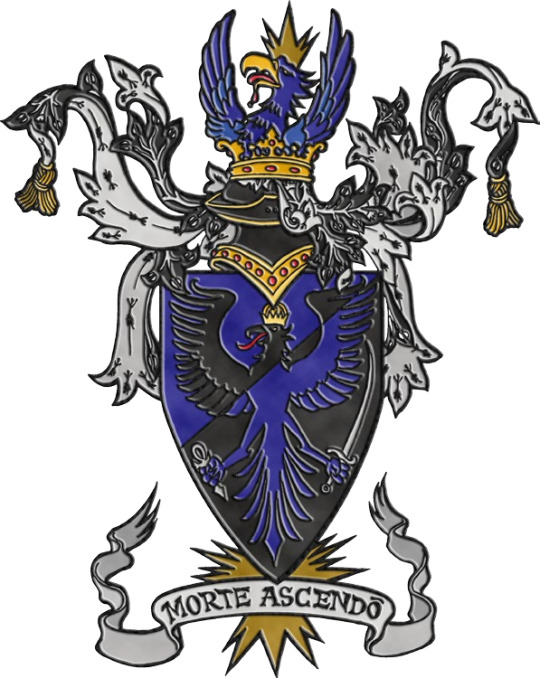
Deep-rooted in religious fervor, perchance due to their profound affinity with shadows, many among the Clan tread the Path of Heaven. This fervent piety kindles strife within the Clan, turning their gaze inward. In Iberia, the Shadow Reconquista rages—a clash between Christian and Muslim Cainites, dividing the Clan. Its echoes reverberate far beyond Iberia, ensnaring distant allies. Christian Lasombra within the Church rally resources for Christian forces, whilst Muslim brethren seek alliances, especially with the Assamites. They implore their Jewish kin to join their cause, for fear of dire reprisal should Christians seize power in Iberia.
Yet, the schism without mirrors the schism within. The Cainite Heresy festers within the Church, a heretical cult dominated by Lasombra priests and bishops. These apostates claim Cainites, marked by God, akin to angelic beings, with the Curse of Caine sanctifying them. Naturally, even non-Christian Lasombra decry this doctrine as blasphemy, striving to expunge such heresy wherever it takes root.
Moniker: Magisters Visage: The Clan of Shadows boasts a diverse assembly, with members hailing from Spanish, Italian, Jewish, North African, or Arabian lineages. Most Lasombra garb themselves in opulent attire, bedecked in silks from the Orient, sumptuous French brocades, or the resplendent fabrics of Arabia. Even those within the Church, though it eschews worldly riches, often don regal vestments befitting their high station.
Refuge and Quarry: Some affluent Lasombra opt to dwell amidst their familial estates, masking their true nature to retain control over their holdings. Here, they find ample sustenance amidst kin, servants, and retainers. Others, averse to the complications of concealment amongst throngs of mortals, establish solitary abodes of opulence, sacrificing convenience for secrecy and security. Some adherents of the Cainite Heresy feed upon their congregants, veiling their actions as sacred rites. Nonetheless, such practices demand utmost discretion, lest they incur the wrath of more orthodox Christian Lasombra.
The Embrace: Lasombra often select their progeny from among the affluent, powerful, or politically astute. Yet, Magisters may equally embrace those of humble origins, whose ambition and intellect shine bright. Birth alone cannot gauge one's mettle or capacity for leadership.
Clan Disciplines: Dominate, Obtenebration, Potence Weaknesses: Lasombra cast no reflection in reflective surfaces, rendering it arduous to conceal their supernatural essence from mortals. Moreover, they recoil from bright light, suffering additional harm from sunlight.
Organization: Within the Clan exists the Amici Noctis, the Friends of Night—an exclusive fraternity admitting only those who have proven their worth to the Clan. Presiding over the Courts of Blood, the Amici Noctis grants leave for Amaranth, serving as the final arbiter of its application. Unsanctioned Amaranth invites swift retribution, as decreed by the Amici Noctis. Predominant in central Europe, Montano staunchly opposes the Friends of Night, forbidding their presence in Sicily and the Castle of Shadows. In Iberia, the Shadow Reconquista impedes the Amici Noctis's authority, rendering it powerless to quell the discord.
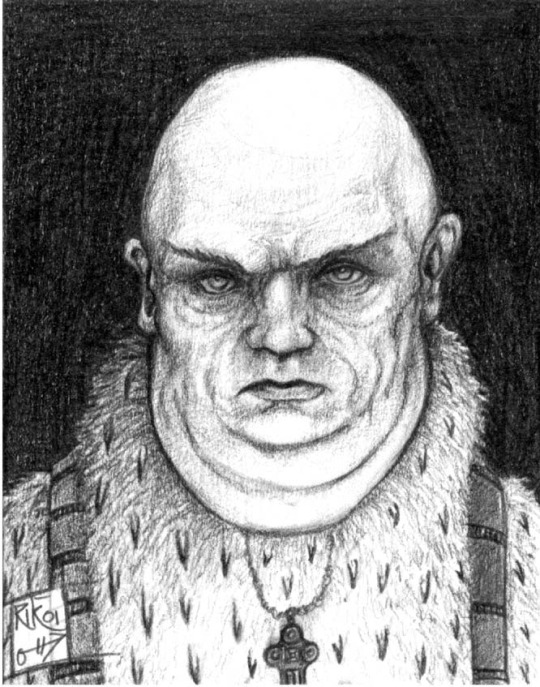
Stereotypes: High Clans: A meaningless distinction, espoused by the equally pointless. Our ascendancy stems from merit, not lineage. Their classification as High or Low speaks volumes of their discernment. Low Clans: Let other High Clans spurn them. Only a fool rejects a valuable asset or indispensable ally. Assamites: More akin are we to the Children of Haqim than to most others. Let prejudice blind others. They are honorable and worthy allies. Ventrue: The Scions misconstrue power and position, to their detriment. Let them pursue lofty ambitions; it renders them pliable. Followers of Set: Let them strive to revive worship of their defunct deity. Time marches on, and those who resist progress are trampled beneath its stride. Tzimisce: Godless pagans, one and all. They spurned the chance to forsake their heathen ways. While we acknowledge their might, we cannot place our trust in them.
#vampire the masquerade#vampire: the masquerade#white wolf#brujah#camarilla#lasombra#vampires#onyx path#v20#dark ages#clan lasombra#sabbat#rpg#world of darkness
18 notes
·
View notes
Text
Veiling is not about Modesty (and it can even be Immodest)
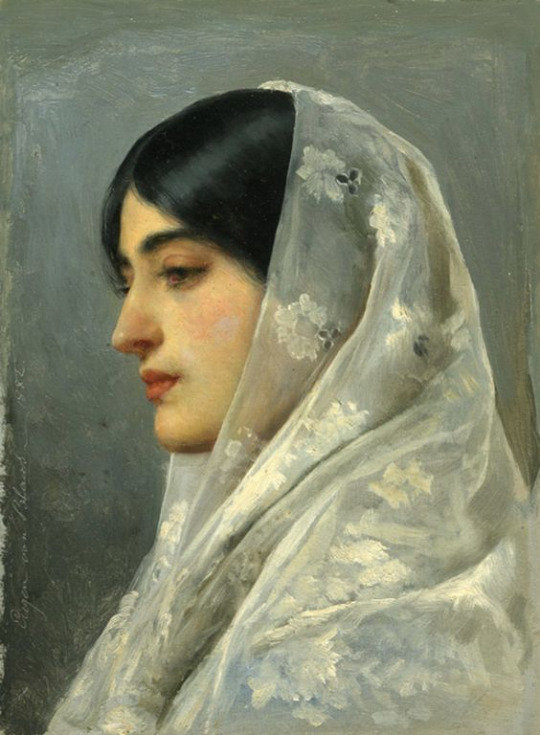
What is the purpose of Veiling? If you were to look at some other religions, the answer you would get is "modesty". To discuss veiling, we must first discuss Modesty and "modesty". The idea goes, the more of the body covered = the more modest it is. But Christianity (and especially Eastern Orthodox Christianity) is much different than any other religion in the world. Thus, our view on Modesty is much different.
Modesty, in our faith, is not about being covered in the Worldly sense; it is about blending in and going unnoticed. This is where the middlingly correct idea of the "heart posture" comes into play(1). It is hypothetically possible to clad oneself in an ankle-length floral dress and a lovely veil and still be immodest if one is doing it with the intention of attracting the attention of pious men. It is always immodest to dress in a way that provokes, intentionally or unintentionally, such as overly flashy clothing or jewelry, or dress that is very foreign to the culture where you are visiting or residing. Likewise, it is also possible to be modest in a garment that leaves the wearer nearly naked, as in a swimsuit at the beach, where that is the expected attire.
The actual purpose of the Veil, especially in a Prayerful or Liturgical setting, is an expression of a portion of our Theology of the Church, the Eucharist, and Jesus. The Church is a woman, a Wisdom to whom all Priests and Bishops are married. All Orthodox Christians are the bride of Christ, though the men and women among us express this truth in different ways. The Eucharist is, theologically, the fruit of the marital union between the celebrant and the Church. Our Christian theology, down to its very core, is marital. The veil is marital garb.
The primary pieces of scripture Christians cite in favor of Veiling are 1 Corinthian's 11:5, " But every woman that prayeth or prophesieth with her head uncovered dishonoureth her head: for that is even all one as if she were shaven," (KJV), and 1 Thessalonians 5:16-18, "Rejoice evermore. Pray without ceasing. In every thing give thanks: for this is the will of God in Christ Jesus concerning you," (KJV). Taken together, many would say that women must, at least, cover their hair/heads in Church and during prayer in general. Many would further say that this implies women should veil all the time, or at least in public.
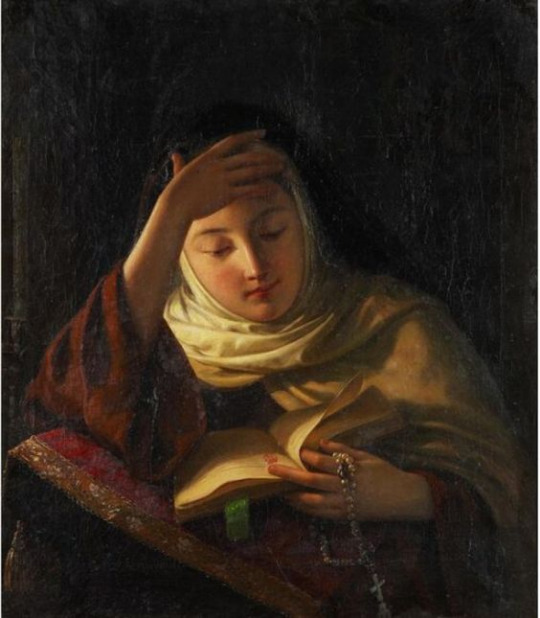
But why is that? Is a woman's hair immodest? Is it indecent to show one's hair or head in public? Fortunately, no. No part of the body in Christianity is considered intrinsically indecent or shameful. On the contrary-- every part of the body is valuable and good, and it is only the Fall that brings shame upon them. What is indecent and what is acceptable is determined by the society you find yourself in. If we find ourselves in a community that believes elbows are the height of inflammatory sexuality, I should hope we all cover them with only the thickest of wool shrouds.
In the Old Testament, a woman covering her hair is a symbol of marriage, first and foremost. This is not only true in the Hebraic culture of the OT, but also in most antique cultures across the Middle East and the Mediterranean both in the OT, and in the Gospels and the Epistles. Unlike what many young Orthodox women say, the veil is not a symbol of submission, either-- at least not any more than a wedding ring is today or the veil of Hebrew women was. The veil of a Christian woman is the expression of a theological truth-- wearable ecclesiology and Christology.
1) Much of the discussion of heart posture, especially in protestant circles, is simply an excuse to wear crop tops to Church in the name of personal piety. Another post on this shall follow. A good rule of thumb is that heart posture always condemns, never excuses.
#eastern orthodoxy#christianity#orthodox christianity#eastern orthodox#christian#modesty#veiling#veil#Christian modesty#christian girl#christian blog#woman of god#feminine modesty
18 notes
·
View notes
Text
Protestantism and the Jewish sect behind the Reformation


The Catholic religion has managed to attract many believers over time and to make a real “reversal” of roles. The first Christians were widely persecuted, especially in the Roman Empire, for example the massacres that took place in the Colosseum in order to entertain the Roman population, and the persecutions carried out by Emperor Nero. However, after the fall of the Roman Empire, many people converted to Christianity and more and more conversion missions began throughout Europe. As soon as the Christian faith adopted many followers, the Church rose as a religious and moral institution, because in the Catholic faith the Church is seen as God's direct intercession over mankind and the world, especially in the celebration of Holy Mass. In addition to the respect attributed to the Church, its rise was also caused by the conversion of emperors, a good hierarchical organization structure, the need for kings to have the support of the Church, the accumulation of wealth from donations (both from the faithful and from nobles and kings) and the crusades, which made it possible to expand both the Christian faith and the territories under the Church's control.
Even at the end of the Middle Ages, with Europe shaken by economic crises, the fall of the feudal system and disease, the power of the Church was not radically affected. However, with the start of the Modern Age, what would later become the Enlightenment ideals began to spread, in other words, there was a major change in the mentality of the people living in Europe.
Much of the change in general came from the consolidation of the bourgeoisie and the formation of the capitalist system, which brought with it this change in lifestyle, which is also not in line with the Christian way of life.
The bourgeoisie arose from the rural exodus of some citizens, who moved to the cities and worked as merchants. As soon as capitalism began to develop, the favored class in this system was precisely the bourgeoisie, which held the profits, i.e. the capital acquired from the trade they practiced in various areas, and not just from land ownership, as was the case with the nobles.
However, bourgeois practices went completely against the values defended by the Church, and by Christ himself in the Scriptures, since they were limited only to worldly pleasures, such as usury and excessive profit, all of which clearly stemmed from greed and covetousness. Another extremely significant factor in relations between the bourgeoisie and Church authorities was the desire to separate the religious institution from the State, defending a kind of liberal secularism, in which the bourgeois believed that it should be their role alone to control politics and the economy, without interference from religious sovereigns.
This tension that grew between the two groups fueled thoughts that contributed to the Protestant Reformation and the creation of Calvinism, for example, two forms of faith that still generate arguments with Catholics today.
Martin Luther, the main figure in the Protestant Reformation, was an Augustinian monk, supposedly concerned about corruptions in the Church: indulgences - the same ones that Pope Boniface IX had condemned in 1392. It was never the Holy Church's mistake, because indulgences have always existed, as they still do, and are even mentioned in the Bible (Mt 16:19, Jn 20:23, Jas 5:16). Indulgences are the sacrament of penance, the act of repentance and confession. In the Catholic tradition, it is also believed that the sacrament of the anointing of the sick and some devotions attributed to the Virgin Mary can shorten the time in purgatory. This has nothing to do with selling items and paying taxes. The Catholic Church has never officially “legalized” such actions, but some priests and bishops, especially those most closely linked to political disputes, have started selling indulgences, with a piece of Heaven in return. Pope Boniface IX also condemned these lies about indulgences.
However, this problem with indulgences served as a chance for those who wanted to free themselves from their dependence on the Church and the inferior power they had in relation to the institution, as well as a chance for the bourgeoisie, who were rising as the dominant class in the economy, to free themselves from the “rules” imposed by the Church. The bourgeoisie, wanting to rely on a religion that would allow them to make as many profits and keep up with commercial expansion, supported the reform ideas proposed by Luther. The kings, who didn't want to depend on the Pope's authority and also wanted to own land, also supported Protestantism, since in this religion there was no Pope as an authority.
Luther then pinned his 95 Theses, which explained the main differences between Protestantism and Catholicism, to the door of a church. He quickly gained popular support from those mentioned above and also from more humble people. The Church gave Martin Luther a few opportunities to go back and retract his statement, but he refused and was excommunicated, marking a complete break with the Catholic Church.
In this way, Luther is not personally linked to the Jews, since he himself carried a strong anti-Semitic view, developed after Lutheran-Jewish contact. However, the various consequences of the Protestant Reformation affected the Jewish milieu, which embraced them as a way of destabilizing the Catholic Church.
Luther had great support from the bourgeoisie, for reasons mentioned above, the same bourgeoisie that began to form after the Jewish diaspora. It is a fact that the Jews became the first merchants, or were at least among them. This is even provided by Google's Artificial Intelligence.


The Jews as merchants wanted to rise after having been expelled from the lands configured as Israel and Palestine today. So they embraced what would bring them the most strength: anti-Catholicism. You can see the Jewish perversion where they don't even value Jesus Christ to be configured as anti-Christian, but rather as anti-Catholic, because that has always been the relationship between the Church and the Jews.
Luther created his own church, but today most Protestants are not Lutherans. By breaking with the Catholic Church, he broke with the unity founded by Christ, and gave himself over to the world. Protestantism is neither One nor Apostolic. Protestantism is a vague religion based solely on anti-Catholicism. It is a scattered and liquid religion, in other words, it has several denominations (more than a thousand in fact), without true unity, without communion in Christ.
In this way, Protestants are adept not only at the worldly style in their sacredness, but also at the free interpretation of the Word of God. Catholics have only one interpretation of the Word: the meaning that God has given us. Protestants, on the other hand, claim that the Word is free for interpretation, making it susceptible to the employment of evil within itself.


It's no wonder, then, that Protestants value the Old Testament.
The Old Testament in the Bible is no good for us Catholics. That's not the basis of our life. We have the Old Testament to see the creation of the world, the trajectory of God's plan, the society in which Jesus lived, the prophecies made (fulfilled in Christ) and the society before the coming of the Messiah. We have no other value precisely because it reflects Judaism. Protestants, on the other hand, follow the Old Testament and what was said there more than the word of God itself (the Gospel) and the formation of the early Church with the apostles. This connection with the Old Testament based on free interpretation allows for a Jewish approach and Jewish values.
Because of this, it's common to see Protestants playing the dog, and humiliating themselves by saying that the Jews are “God's people”, because they have the free basis of the Old Testament and don't read Jesus' refutations of the Old Doctrine in the New. They inferiorize themselves to something that has been refuted and left behind, and so are vulnerable to actually doing what the Jews tell them to do: like supporting the Civil State of Israel. Jews infiltrate Protestant Christianity, claiming to worship the same God as us (contradicted by Jesus in John 8:44), and Protestants give them credibility.
With this mask that the Jews put on, they use false Christianity to destabilize the Catholic Church, which is their greatest enemy. Today we see the number of Protestants growing in comparison to Catholics, and a lot of Protestant behavior that comes close to Judaism, giving them support.


Thus, for the Jews, it becomes advantageous. They gain support from an ignorant mass without theological study, who believe that just interpreting the Bible leads them to the Christian faith, they feed this mass, they make this mass worship them, they put LGBT, feminist and black projects within this mass and this grows so much that it surpasses the Catholic faithful. However, as said above, Protestantism has no unity, which makes it easy for Jews to destroy what they have created, because rivalry between Protestant denominations is very common. What is allowed in one Protestant church may not be allowed in another, and the one with the most strength will emerge victorious; but in the end they are all controlled by the same enemy.
My conclusion is based on my own experience, observed mainly in Brazil, the country I live in. Liberal pro-Israel and Zionist politicians are Protestants, have persecuted Catholic bishops and priests, defend the Jewish people, and belong to different denominations. The number of Protestants in Brazil has surpassed the number of Catholics. Protestants wear Israeli flags and claim that Israel is where the “chosen people” are. All of them, I'm not saying the majority, but all of them, are ignorant, who don't study theology, don't study the Bible and don't know anything about history, and refuse, because they are anti-Catholic, and curse Catholics all the time. Protestant churches persecute other Protestant churches if they don't follow the same values. Protestant churches are linked to drug trafficking and money laundering. What Luther criticized as “indulgence paid for with money” is real today in Protestant churches, which force people to pay full tithes, and there are cases of pastors who have assaulted believers who failed to pay.


Protestantism is, in conclusion, just a disorganized sect of Christians who still don't know the truth of Jesus Christ, which is the truth of the Catholic Church, and build sects without unity, controlled by stealth by the Jews.
3 notes
·
View notes
Text
Heretic - a Malevolent fic
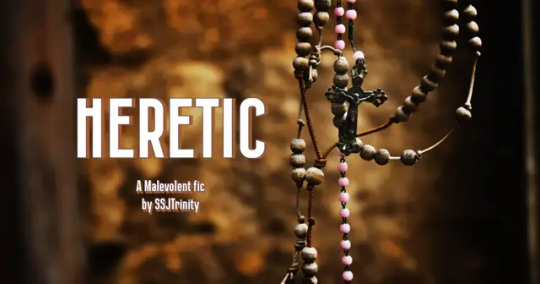
What road remains for a man whose purpose abandoned him?
AO3
For @aktrashpanda, who drew this art:
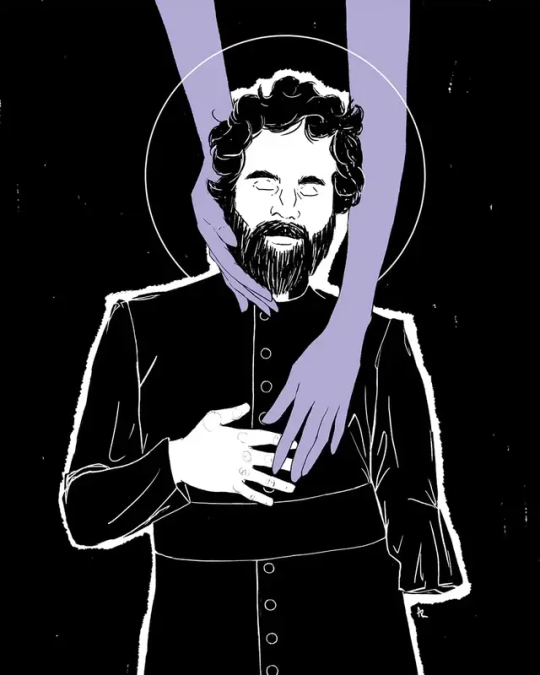
What road remains for a man who lost his own? Who misplaced the one he was given? Who followed, sure, faith and sight fixed on what seemed narrow and true?
Aye, but that’s the wrong question. Here is the right one: what remains for a man whose road, narrow and true, abandoned him?
It’s an answer I never sought, for I did not know the road could refuse its rider. My purpose, my meaning, as I knew he was, left me behind. I woke without my road, and without my arm, my purpose run away. No one has seen him.
What road remains, then, for a man? The truest of all: seek and you will find.
#
‘Tis the newspapers which the Lord uses to shed light on my new way: the report on the mayhem up north, half of New York’s elite caught up in some scandal.
I recall… something about upstate. This is where my purpose was going next, and by God, it sure looks like he got there.
The story’s a good ‘un, rife with worldly intrigue, and the papers talk of nothing else. There’s murder, fire, underground rituals, strange masks and bodies no one can identify, and… Satan-worship?
So it’s called in the reports about the mess our finest uncovered, yet that is not the devil’s symbol I see in these grainy photos. I know what I see, for it was in Arthur’s book.
I had time to study that book, to learn some new truths, and I remember what it was called: Malleus Monstrorum, the Hammer of Monsters. Between learning to live without my arm, and giving comfort to my sheep (who come to me for it, distressed by my injury and unable to offer their own), I take months to locate a copy. To track down the wayward brother in Dunwich who has one, and is willing to let me see.
And in that time, I find no comfort with my flock, or in my prayers, or on my knees. Neither with the host on my tongue, nor with sleep in my eyes. There is no comfort, for my road has forsaken me.
But the book. The book, blasphemous yet true: brother Andrew, muttering and mad, lets me see, and in it I find the symbol they saw upstate, and it leads me on.
He was not alone in his hard journey, brother Andrew, and from him, I receive names, clues, a way forward. I follow that symbol through paths and hints and secret codes, and I find the people who know what it means, and I walk this new road that seems to have found me.
Which it has.
And then, I find her.
#
She, who walks between. She, who thinks herself above creation, but is not; she, who, being so old, is so young, and has so much to learn. And I… know I am meant to teach her.
(Is it heresy to find a new purpose after yours got away? Is it heresy to seek a new path, to follow a different star when the one you knew has gone dark?)
She takes me from my life because I recall to her that same road which abandoned me; we’re both forsaken, left behind by him who gave us purpose and direction and hope. (Though she does not call it hope, I know what I see. What she lacks is not hope, but faith.)
She says he was her favorite. I say he was my purpose, and so condemn myself.
“I will keep you, little priest,” she says, not acknowledging that I sought her.
“I will use you, little priest,” she says, bidding me wield the skills the good Lord gave me, which she calls magic and I call penance.
“I will corrupt you, little priest,” she says, not knowing that I am already corrupted, and she can bring me no lower.
But I can lift her up.
Through her teaching, I learn to heal, and so can finally do good deeds to weigh against my bad. Through her, I meet and lead wild sheep who may never lay eyes on another shepherd through all their cursed lives. Through her, I travel, and see works and worlds unimaginable, and through her, I will be redeemed as I guide her to redemption.
(It is not the same as weekly confessions, the same humble faces masking repeated sins and perfunctory repentance. It is sanctification, active and pure.)
Arthur Lester was my purpose, but now, I see: he was not an end in and of himself. He was the road to my end.
“I should kill you, little priest,” she says, but she means it not at all. I am her purpose, and she’s mine, led together by one who had no faith of his own. The Lord works in mysterious ways.
“I will convert you, little priest,” she promises, low, and that I will not worship her makes her question what she knows.
In the end, we will save each other, or damn each other, and either way, Arthur Lester is to blame. I don’t know that he lives, but I have faith that he does—and I pray for him. I pray he finds his own road, and this time, that he stays true.
----------------
NOTE:
Psst… there's a way to support my writing now (and thank you Kraiva, Som, Charlie, Flamia, Bree, and more who encouraged me to do it).
16 notes
·
View notes
Text
oc talk abt one of my older story ideas
most of my ocs are characters/verses ive had since like middle school and have been vaguely developing ever since. in the last years of doing stuff w the five/iseldre characters ive been focused a lot more on making them abt like. diversity of experiences all coming together. but also the original idea of it wasnt just abt that it was more abt like. every 100 years five babies born r chosen by the gods to be their representatives on earth and theyre supposed to vaguely all get together and kind of make decisions that will effect everyone in the world. and its a lot about the expectations people have for the next gen of chosen and that these kids grow up under that expectation and then have to become adults under this legend they physically represent
the original main character, riley, i had for it (though i want it to be ensemble cast of the five, really, but hes always gonna be the og) was a trans man who had to hide his identity both as the next chosen one and his gender because there was a belief that every generation of chosen would 'switch' genders and so this rounds space god chosen should be a girl But hes Transgender. Imagine. (lots of thinly veiled projection onto him and 'research for a story' abt him that was just me looking up how to transition) but now i Understand Things More im trashing parts of that/rewriting it
hes nonbinary, but hes still ~stealth as a trans man. hes still hiding his identity. now i think on it i think itll be that its Believed that the chosen 'switch genders every generation' but thats like. a pattern that doesnt exist that people are reading into things by selectively looking at recorded history that supports it and quietly ignoring the parts that dont seem to add up
but either way, it expanded into like with each of the five i wanted to explore a different tension/theme/problem. riley was going to be hiding his identity, laurie would be wrestling with religious beliefs/colonization (she grew up basically in a christian mission church raised by a pastor but also idk how that fits into the world at all lol i just wanted a character that wld hate priests.), ram would be dealing with being aromantic and low affect + low empathy so she just gets a lot of shit. and she can be kind of a dick but also she would "be cis" and then halfway to 2/3s of the way through realize shes transfem and start transitioning. chako is about leaving a home that they love and having to move forward despite never wanting to leave. and wind is like. idek theyre just around to be around. theyre the pinkie pie of this group atm
and i got so sucked into thinking about all those individual storylines and shit i forgot what i really wanted to do overall with this and it was like. i think i didnt know it fully but im reaching for something leaning into that loz-verse flavor of being forced by seemingly random chance at birth to be part of a great repeat of history that everyone says is Very Very Important but also it doesnt seem fair that its been put on You for no fucking reason + why does this need to happen at all
i was toying for a while of "shouldnt they have powers or something" but and this reminds me why they dont. because theyre not even that special. theyre chosen by specific symbol birthmarks in specific bodily locations, so they are explicitly "specially chosen" but like. theyre not. its random & they have no powers they have nothing but a birthmark that means theyre Worldly Important. there is no upside for them out of this, and it is somewhat easily faked via tattoos and other things so its a big point of what this world works on is a worldwide program to track births for this
and it also makes rileys shit a big problem in that his parents never reported him when he was born and had isolated him completely from the rest of the world. and the world is like wheres the space gods chosen this is sooo weird and every few years a faker turns up but gets disproven eventually. and his deal is kind of about familial abuse especially in a specific style of raising children in very isolated environments by homeschooling, controlling contact w others, and living rurally, (and denying his transition) and its about him escaping that finally and then coming into society and struggling to cope while also struggling w needing to compulsively hide himself from others for multiple reasons
3 notes
·
View notes